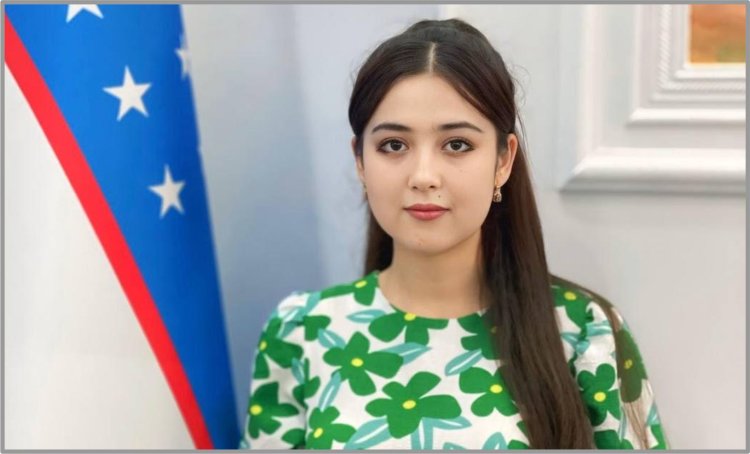Muattar Tursunboyeva
DEVELOPING CREATIVE QUALITIES IN LITERARY EDUCATION
Namangan State Pedagogical Institute Uzbek Language and Literature Department, 1st-Year Master’s Student Muattar Tursunboyeva
Abstract:
This article discusses the development of creative thinking, independent reasoning, and innovative approaches in students through literary education. It analyzes modern teaching methods, interactive techniques, and tasks aimed at enhancing creativity in literature classes. The article also outlines ways to foster creative competencies through text analysis, character interpretation, and understanding the author's message. Furthermore, it references advanced international practices.
Keywords: literary education, creativity, creative approach, character, interactive methods, text analysis, competence.
1. Purpose and Objectives of Literary Education
In today’s globalized world, one of the main goals of education is to form individuals who can think creatively and independently. Literary education plays a crucial role in this process. Literature classes not only cultivate aesthetic taste but also deepen thinking, foster imagination, and encourage creative approaches. Each teaching term has its specific goals and objectives.
The main goal of literary education is to develop students’ skills in analyzing literary texts, understanding the author’s ideas through characters, and providing aesthetic evaluation. The teacher plays a vital role in this by broadening the student’s thinking through methodological approaches.
2. What is Creativity and How is it Formed?
Creativity is the ability to approach issues in new ways, solve problems unconventionally, and think innovatively. In literary education, the following methods can be used to foster these qualities:
Analyzing metaphors and symbolic expressions;
Dialogic reading;
Role-play exercises;
Written creativity tasks (essays, stories, excerpts).
3. Interactive Methods and Creative Approaches
Nowadays, teachers enrich their practice with interactive methods such as:
“Fishbone Diagram”,
“Modern Editor”,
“Discussion-Based Presentation”,
“Conceptual Mapping”.
These techniques enhance students’ engagement with knowledge and promote a creative attitude toward literary texts.
4. Criteria for Assessing Creativity
When evaluating students’ creative work, the following aspects are considered:
Novelty of ideas;
Expression of characters;
Richness of language;
Ability to draw independent conclusions.
5. International Experience and Innovative Approaches
Programs such as PISA and PIRLS emphasize literary literacy and creative thinking as important criteria. In countries like Finland, South Korea, and Japan, special attention is given to shaping students’ worldview through literary works.
In literature lessons, the teacher selects methods based on the topic. For instance, the “Brainstorming” method, also referred to as the “Mental Attack” method in the second part of the 2022 publication Methodology of Teaching Literature, is widely used. Synonymy also plays an important role in literary education.
Conclusion
Fostering creativity in literary education not only increases the effectiveness of learning but also contributes to the student’s personal development. These qualities help young people grow into independent, creative, and thoughtful individuals. Therefore, every teacher should incorporate innovative and creative methods in their practice.
REFERENCES
1. A. Hasanov, Foundations of Creative Thinking, 2020. Bukhara: Zamon Press. p.118.
2. D. Xoliqova, Innovative Technologies in Education, 2021. Samarkand: Ilm-Ziyo. p.132.
3. Q. Husonboyeva & R. Niyozmetova, Methodology of Teaching Literature, Tashkent: Inavatsiya Ziyo. p.159.
4. S. Nazarova, Literary Theoretical Thinking and Figurative Reflection, 2023. Tashkent: Fan va Texnologiya. p.153.
5. Z. Abdullayeva, Creative Approach in Literature Lessons, 2022. Tashkent: O‘qituvchi. p.145.
Muattar Ikromjon qizi Tursunboyeva was born on August 6, 2000, in the Toraqo‘rg‘on district of Namangan region. She graduated from Specialized State Boarding School No. 18 in Namangan city and later completed her studies in the Uzbek language program at Namangan State University. Currently, she is a first-year master's student at Namangan State Pedagogical Institute. From a young age, Muattar has been passionate about poetry and literature. Her poems and articles on various topics are regularly published in the media. Muattar's goal is to become a highly qualified specialist in her field and to share the beneficial knowledge she gains with future generations.

